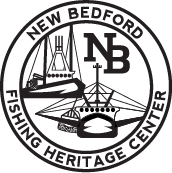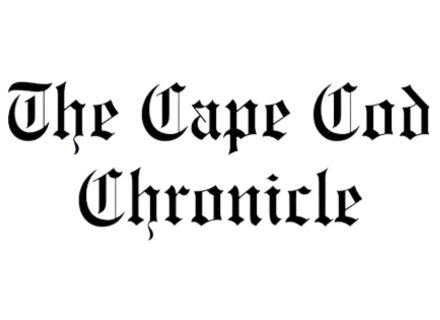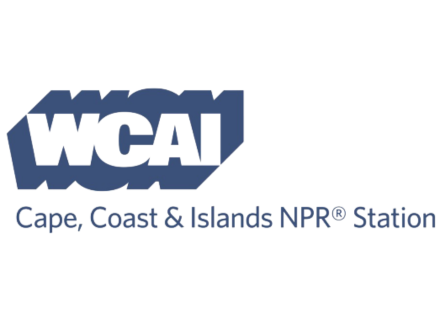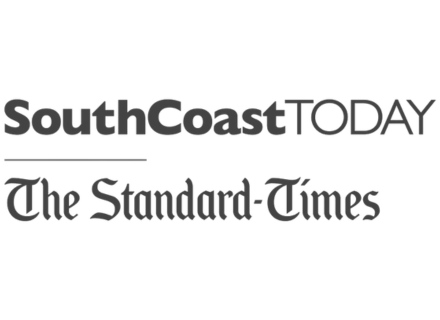Read the article online here.
The Cape Cod Chronicle
Doreen Legett (October 6, 2021)

Karen Johnson on the flats. SHAREEN DAVIS PHOTO
Peggi Joseph, long dark hair tied in a ponytail, blue sweatshirt and matching rubber gloves peeking out of orange Grundens, makes quick work of packing thousands of pounds of haddock.
Her image was captured by photographer Shareen Davis at Stage Harbor as Joseph moved hefty haddock into totes beside a bin of ice.
Joseph seems unaware of the camera. Davis catches her intent on doing a job she loves.
The picture is part of a new exhibit, “Women’s Work: At Sea, On Shore, At Home, In the Community,” at the New Bedford Heritage Museum, designed to shine light on many roles women play in commercial fishing communities.
Laura Orleans, director of the museum, said she has been thinking of putting together the exhibit ever since she realized that not enough people know “women are involved in every aspect of the fishing industry, and have been historically involved, it’s not just a new thing.”
Visitors meet women who work on deck as fishermen and scientists, on shore as welders, processors and gear makers, who own businesses and boats, who advocate on behalf of the fishing industry. And they will hear about the value and importance of the industry; more than 60 photos are accompanied by oral histories.
A caption with Joseph’s image lets viewers know she was packing 3,500 pounds of fish for auction in the dead of winter and wore sneakers instead of boots for better traction.
“I like being outside and hands-on and as soon as I could leave retail I did. A fisherman at the dock once asked me, you’re not gonna pack out that boat by yourself, are you? I said, yup, just watch me,” reads the caption.
The exhibit, which is up until March, explores topics ranging from “What Do You Call a Woman Who Fishes?” to “Women in Myths and Marketing.”
A section on pioneers covers historic figures such as Fish Mary (Mary Stanley), a lumper on the New Bedford docks in the 1960s and Linda Despres, the first female chief scientist on bottom trawl surveys in 1975 with the Northeast Science Center in Woods Hole.
The exhibit covers fishing communities in Rhode Island and Maine as well as Massachusetts, with images from Markham Starr and Phillip Mello as well as Davis.
Davis’ contributions include shellfishermen Karen Johnson, Sandra Liska and Coralie Peltier; the late Rosemarie Denn, who owned Cape Fishermen Supply with her husband Bob; Melanie Mason, who worked as a baiter; Shannon Eldredge, who owns a trap fishing company; Morgan Eldredge, who works as a fisherman and with her sister, Shannon, at Fishermen’s Partnership Support Services; and Sandy Collingwood, who made and mended gillnets.
Davis, a member of the Chatham Select Board, comes from a fishing family, married a fisherman, has daughters who fish (the Eldredges mentioned above), has been a fisherman herself and is a fisheries advocate.
She has been photographing people in the fisheries for close to 40 years, and as she chose images, some more than a decade old, and spoke to the women again, “their voices spoke a lot to my experience,” she said.
“Women’s voices aren’t really heard. Women have played an integral part for hundreds of years,” Davis said.
Women can be found in every part of the industry, but that has always been challenging; just think about the myth that women are bad luck on a boat, Davis said.
So in addition to the challenges of the wind and tide, stormy seas and capricious markets, women have an extra hurdle. Overcoming that can take extra strength.
“They exude their confidence and capability,” Davis said. “They are on equal par with anybody who participates in harvesting the sea.”
The exhibit speaks to normalcy – women have been there all along – but also to gender equality and diversity.
“I am hoping it brings a bigger perspective to the narrative of people who fish and harvest seafood,” Davis said.
“I think it’s fantastic,” Joseph agreed. “It was kind of an honor to be recognized in that way. It was one of my favorite jobs.”
Joseph ran a shop that bought from a number of fishermen so she would go down in a big box truck to unload boats, pack fish and take it where it needed to go. She met a cross-section of interesting people and had to know how histamines affect tuna as well as how to quickly bait hundreds of hooks, among other things.
Joseph added that those in the fisheries should be thankful to Davis, who has thrown herself into advocacy, but who also captures the stories of everyday people.
“She has really brought (the industry) to light,” Joseph said.
Davis said she plans to keep at it.
“There are more stories to tell,” she said.
The exhibit is expected to be online by November. For more information, visit fishingheritagecenter.org/programs/calendar/.
Doreen Leggett is the community journalist for the Cape Cod Commercial Fishermen’s Alliance. She can be contacted at doreen@capecodfishermen.org.





